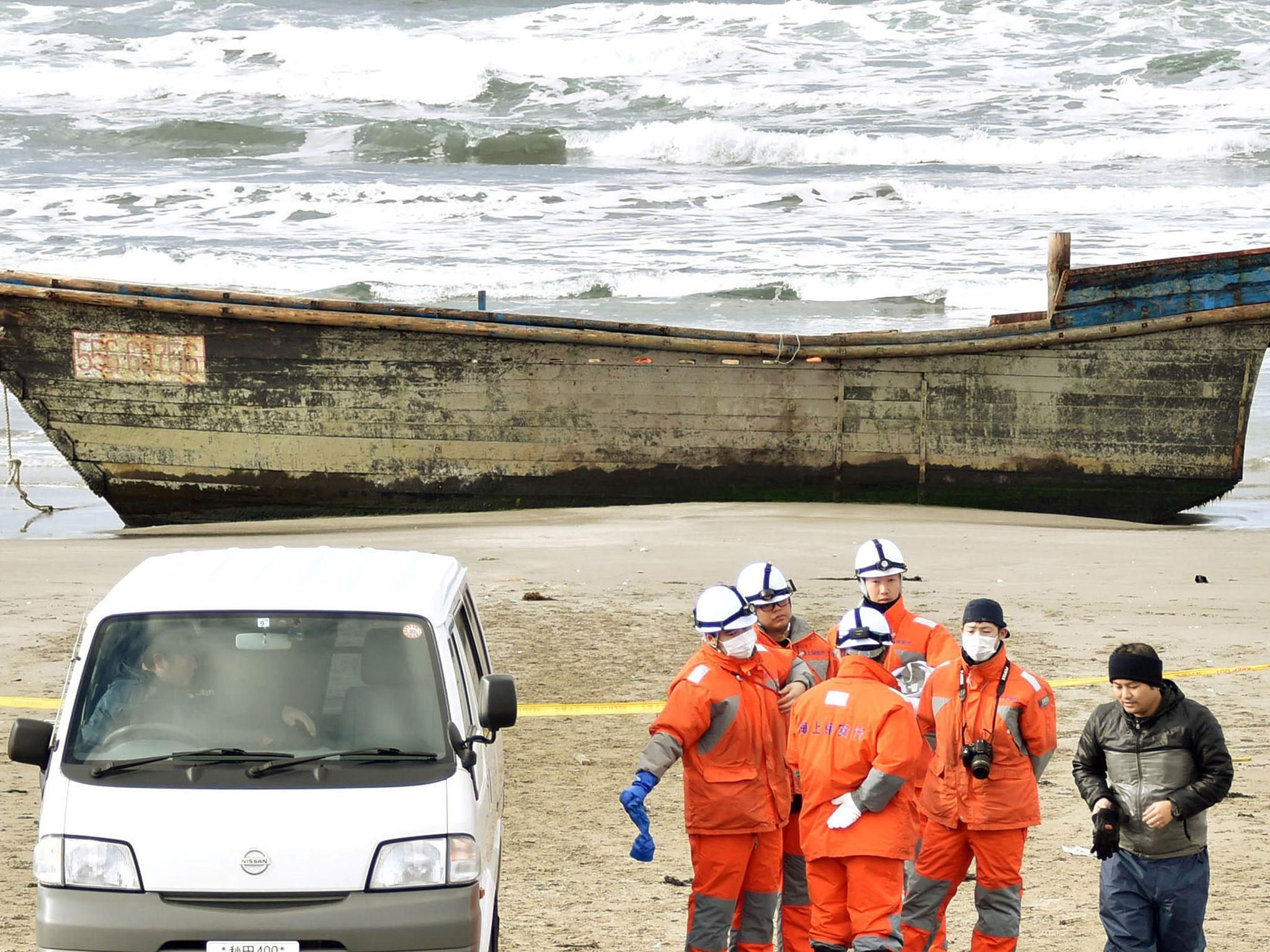North Korean 'ghost ship' washes ashore in Japan with eight decomposed bodies on board
Badge bearing portraits of authoritarian state's leaders found alongside corpses

Your support helps us to tell the story
From reproductive rights to climate change to Big Tech, The Independent is on the ground when the story is developing. Whether it's investigating the financials of Elon Musk's pro-Trump PAC or producing our latest documentary, 'The A Word', which shines a light on the American women fighting for reproductive rights, we know how important it is to parse out the facts from the messaging.
At such a critical moment in US history, we need reporters on the ground. Your donation allows us to keep sending journalists to speak to both sides of the story.
The Independent is trusted by Americans across the entire political spectrum. And unlike many other quality news outlets, we choose not to lock Americans out of our reporting and analysis with paywalls. We believe quality journalism should be available to everyone, paid for by those who can afford it.
Your support makes all the difference.Eight decomposing bodies have been recovered from what is believed to be a North Korean "ghost ship" which washed ashore in central Japan.
The eight males were found with a badge bearing the portraits of Kim il-Sung, the founder of the authoritarian state, and Kim Jong-il, its deceased leader, Kyodo News reported.
Wearing the badges is mandatory for North Koreans and they form a key part of the regime's cult of personality.
A cigarette box with Korean characters was also found.
Police and the Japan Coast Guard discovered the wreckage of the 16-metre-long ship in Kanazawa, Ishikawa Prefecture last week.
They found a body around 15 metres from where the boat had washed up and an autopsy showed he was between 30 and 50 and had died around last September.
The other seven bodies were found inside small rooms inside the wreckage.
It is believed to be the latest North Korean boat to arrive on Japan's coast.
A record 104 washed up on Japanese beaches last year, compared to 66 in 2016, according to the Japanese coastguard.
Food shortages in the isolated country are thought to drive North Korean fishermen to venture out into deeper waters in search of larger catches.
Join our commenting forum
Join thought-provoking conversations, follow other Independent readers and see their replies
Comments